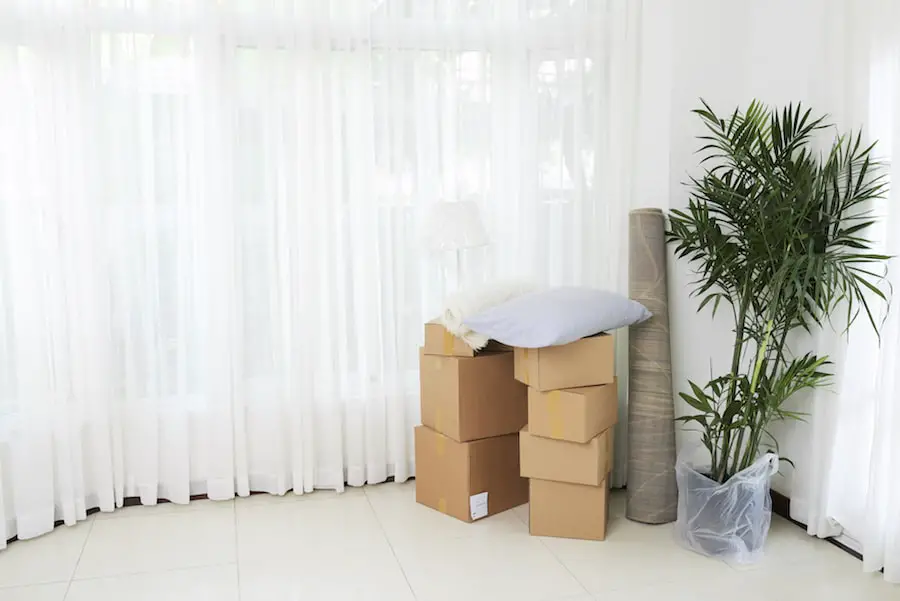
Most homeowners will be required to carry homeowners insurance by their mortgage lender. In order for your home loan to be extended, insurers will ask for proof that you have already paid for one year’s coverage before closing can be completed on your house purchase.
Why Mortgage Lenders Require Homeowners Insurance
For the duration of your home loan, your mortgage lender has a lien on your property and, in essence, co-owns the home with you. As a result, the lender is eager to protect that property and will require that you carry home insurance that has coverage that will go towards the replacement cost of your home.

In most cases, your mortgage lender will make it clear to you exactly what kind and amount of coverage you need to carry for you home, but the standard amount is however much coverage will completely pay for the total cost of rebuilding your home if its damage results in a total loss.
Generally, this coverage will apply if damage occurs from natural disasters like lightning, hail, and windstorms. If you live in an area where there is the risk of flooding or earthquakes, even though standard home insurance policies don’t cover them, you will still need a policy that financially protects your home from these kinds of damage.
If your home requires additional coverage, your home insurance company will have add-on riders and policies that can supplement your general homeowners policy. If you live in an area with documented risk, such as in FEMA’s high-risk flood zones, your mortgage lender will expect proof of applicable policies that protect against that risk.
Homeowners policies also protect against damage from:
- Fire
- Theft
- Vandalism
- Falling objects
- Frozen household systems (plumbing, heating, AC, etc.)
- Accidents involving vehicle damage
- Civil disturbances
- Explosions
Because of the coverage that homeowners insurance offers, mortgage lenders will be assured that their property isn’t lost and that you are more likely to keep paying off your mortgage because you haven’t lost your home and belongings.
What Homeowners Insurance Covers
On top of covering the replacement cost of your home, in most cases, your homeowners insurance policy will also have the following types of coverage:
- Personal property
- Loss of use
- Liability
- Medical bills
In the event of damage to your home, personal property coverage would have a set limit of money that would go toward repairing and/or replacing lost or damaged personal belongings in your home. Standard policies include between 20% to 50% the value of the replacement cost detailed covered.
In the event of a no-fault accident on your property, medical bill coverage would cover the medical costs that an injured visitor might incur. If an injury or property damage occurs as the result of your negligence, liability insurance would apply, with a standard coverage limit of $100,000.
When shopping for coverage prior to closing, it’s important not to rush through the decision in your hurry to fulfill your mortgage lender’s requirements and risk overlooking other considerations.
For example, your coverage needs might exceed the insurance that your lender asks you to carry. For example, common advice for homeowners is to carry $300,000 to $500,000 in liability coverage compared to the standard $100,000.
While you’re shopping for your policy, be sure to research your options and consult an insurance agent and/or broker that can help you find the right choice for your new home.
Why You Should Pay for A Policy Before Closing
During a house sale closing, there are generally a number of costs you have to pay, such as lender fees and other costs that result in one lump sum payment due at closing.
If you pay for your first year’s home insurance premium prior to closing, you can space out how much money is leaving your pocket at once, which can be financially beneficial to you.
Another advantage is that if your home insurance policy is already ready, your mortgage lender will be able to establish an escrow account for you. An escrow account is one into which you will make monthly escrow payments, which include your monthly mortgage payment as well as a monthly fraction of the property tax and home insurance premium you will owe each year.
As a result, you will be able to have the bank manage your payments so that you only have one monthly house payment to worry about.
Additionally, in future years, you will be able to take advantage of the discount most insurance companies offer to homeowners who pay annual premiums since your mortgage lender will pay the premium annually. At the same time, you’ll have the flexibility to pay monthly and keep more cash on hand.
While you’re in the middle of settling a house you’ve purchased, shopping for insurance ahead of closing might seem like the least of your priorities. However, make sure to take a measured approach to this task as home insurance coverage is an important part of having your closing proceed smoothly and of protecting you and your home financially.

